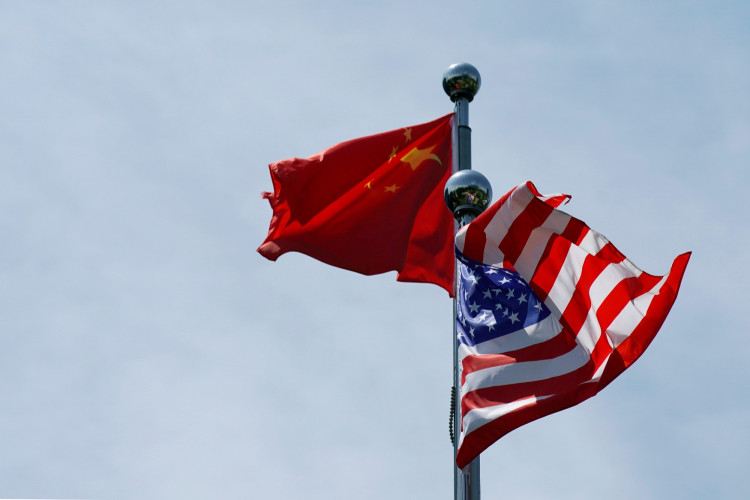China has strongly criticized the United States' decision to allow Ukraine to use long-range U.S.-supplied missiles to strike targets inside Russia, warning that such a move could exacerbate the conflict and hinder diplomatic efforts for peace. The approval, which grants Kyiv access to the Army Tactical Missile System (ATACMS) capable of reaching up to 190 miles into Russian territory, marks a significant policy shift by President Joe Biden.
According to reports from the Associated Press and other outlets, the decision was made in response to escalating Russian aggression and North Korea's deployment of troops to support Moscow.
China's reaction underscores its longstanding call for de-escalation and a cease-fire in the conflict. Liu Pengyu, a spokesperson for the Chinese Embassy in Washington, D.C., stated in an email to Newsweek that China opposes any actions that could "pour fuel on fire and escalate the war." He added, "Relevant parties should strive to create conditions for a political settlement of the Ukraine crisis through dialogue and negotiation."
Chinese Foreign Ministry spokesperson Lin Jian echoed these sentiments on Monday, emphasizing that "the immediate priority is to promote de-escalation as soon as possible." Lin reiterated China's commitment to "playing a constructive role" in mediating a peaceful resolution to the conflict, a stance that Chinese President Xi Jinping highlighted during a recent meeting with Biden in Lima, Peru.
The meeting between Biden and Xi, which may be their final encounter before Biden leaves office, saw Biden express concerns over China's continued support for Russia's military-industrial complex. His administration has previously sanctioned Chinese entities accused of supplying drone components and other military goods to Russia. Responding to these concerns, Lin said China adheres to a "cautious and responsible" approach to military exports and has not provided lethal weapons to either side in the conflict. "We have consistently and strictly regulated military and dual-use drones," Lin stated.
The U.S. decision to allow Ukrainian strikes within Russian borders has drawn sharp criticism from Moscow. Kremlin spokesperson Dmitry Peskov described it as a "qualitatively new round of tension" in the conflict, asserting that it amounts to direct U.S. involvement. Russia has warned that such moves risk escalating the war and could provoke a strong response. Vladimir Dzhabarov, a senior Russian legislator, warned that the approval "marks a very big step toward the beginning of the third world war," while also suggesting that Russia's retaliation would be swift.
In Ukraine, the announcement has been met with cautious optimism. President Volodymyr Zelenskyy responded to reports of the authorization by emphasizing the need for action over words. "Missiles will speak for themselves," Zelenskyy stated. The ability to target Russian military installations beyond Ukraine's borders is seen as a potential game-changer for Kyiv, which has struggled to fend off Russian attacks on its infrastructure and cities.
Analysts remain divided over the potential impact of the U.S. decision. While some see it as a lifeline for Ukraine, others caution that it may not fundamentally alter the course of the war. A high-level French military official told reporters that the move "will not change" the balance of power on the battlefield but could slow down Russian advances. "This is an industrial war," the official noted, adding that the long-term outcome will depend on which side can sustain weapon production and resources.
Complicating matters further, North Korea's involvement has raised concerns of a widening conflict. Reports indicate that North Korea has sent thousands of troops to support Russia and is supplying artillery capable of targeting Ukrainian positions. The introduction of North Korean troops has prompted additional scrutiny from the international community and highlighted the complex web of alliances shaping the war.
Amid these developments, China has reiterated its call for diplomatic efforts and peace talks. "China conducts shuttle diplomacy and mediation to promote peace talks, makes every effort for peace, and strives for de-escalation," President Xi told Biden during their meeting. However, Beijing's calls for restraint have been met with skepticism by some Western observers, who question China's alignment with Russia and its role in the conflict.






